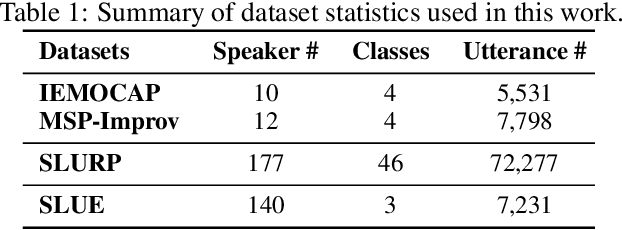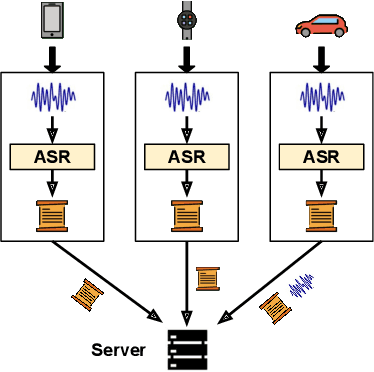TI-ASU: Toward Robust Automatic Speech Understanding through Text-to-speech Imputation Against Missing Speech Modality
Paper and Code
Apr 27, 2024



Automatic Speech Understanding (ASU) aims at human-like speech interpretation, providing nuanced intent, emotion, sentiment, and content understanding from speech and language (text) content conveyed in speech. Typically, training a robust ASU model relies heavily on acquiring large-scale, high-quality speech and associated transcriptions. However, it is often challenging to collect or use speech data for training ASU due to concerns such as privacy. To approach this setting of enabling ASU when speech (audio) modality is missing, we propose TI-ASU, using a pre-trained text-to-speech model to impute the missing speech. We report extensive experiments evaluating TI-ASU on various missing scales, both multi- and single-modality settings, and the use of LLMs. Our findings show that TI-ASU yields substantial benefits to improve ASU in scenarios where even up to 95% of training speech is missing. Moreover, we show that TI-ASU is adaptive to dropout training, improving model robustness in addressing missing speech during inference.
 Add to Chrome
Add to Chrome Add to Firefox
Add to Firefox Add to Edge
Add to Edge